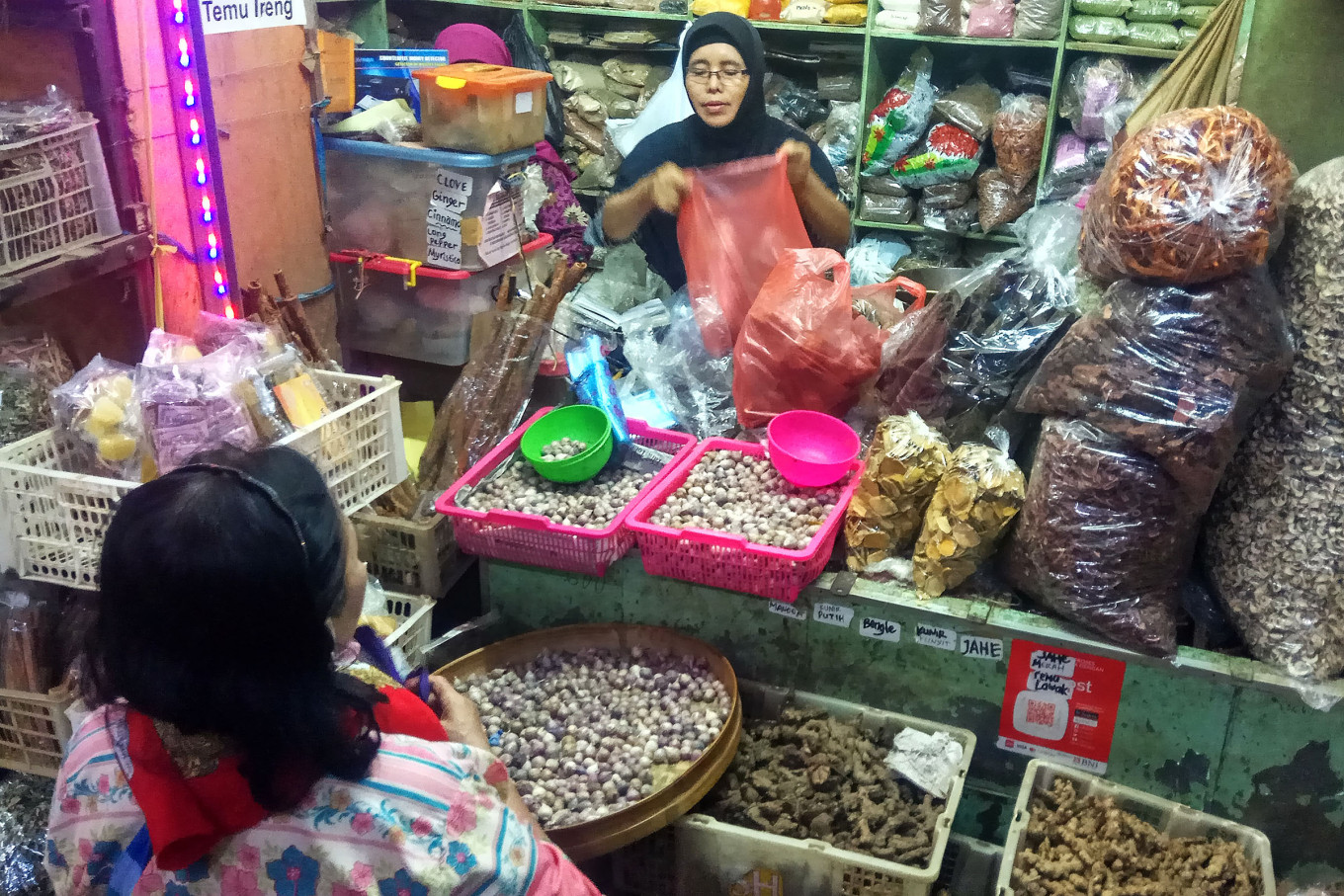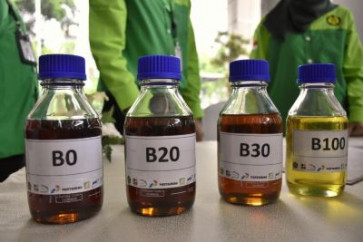Popular Reads
Top Results
Can't find what you're looking for?
View all search resultsPopular Reads
Top Results
Can't find what you're looking for?
View all search resultsPanic hoarding of herbs, medicinal plants amid virus scare takes toll on 'jamu' vendors
Sumini, a jamu vendor in Colomadu, Karanganyar regency, Central Java, bemoaned the recent price surge.“The price of red ginger has been the most affected, rising from Rp 30,000 [US$2.10] per kilogram to Rp 50,000 per kg," she said on Tuesday, referring to a basic ingredient in a jamu drink, as quoted by kompas.com.
Change text size
Gift Premium Articles
to Anyone
W
hile many Jakartans flocked to convenience stores to stock up on medical supplies after the announcement of the country’s first coronavirus disease (COVID-19) cases, many people in other regions reacted by hoarding herbs and medicinal plants that are supposedly effective at preventing viral infections.
However, such acts of panic buying have taken a toll on jamu (traditional herbal medicine) vendors, who recently complained that the prices of the main ingredients for their drinks, such as red ginger, have soared.
Read also: Panic buying hits Jakarta after announcement of first COVID-19 cases
Sumini, a jamu vendor in Colomadu, Karanganyar regency, Central Java, bemoaned the recent price surge.
“The price of red ginger has been the most affected, rising from Rp 30,000 [US$2.10] per kilogram to Rp 50,000 per kg. The price for kencur [aromatic ginger] rose from Rp 35,000 per kg to Rp 42,000 per kg. And then temulawak [Javanese ginger], which was previously sold for Rp 4,000 per kg, now sells for Rp 12,000 per kg,” Sumini said on Tuesday as quoted by kompas.com.
She said the plants were the main ingredients of empon-empon (packaged spices used to make a drink).
The drink has become highly popular following a recent study by Chairul Anwar Nidom from Airlangga University in East Java that claimed that consuming the traditional beverage could increase one’s immunity to diseases.
Read also: Calls mount for revival of national outbreak committee over coronavirus fears
Chairul said empon-empon contained curcumin, a substance commonly found in turmeric, and might, therefore, help prevent cytokine storm – the overproduction of immune cells and their activating compounds – in the lungs.
“Cytokine actually serves a positive purpose, but it has a negative side effect, which may inflict damage on its surrounding cells. Cytokine is what causes the body to warm up when an individual is infected with germs,” he said.
The traditional beverage was discovered to have potent medicinal effects on alleviating the symptoms of bird flu. The university will conduct further research to determine whether the beverage has similar effects on the novel coronavirus. (rfa)










